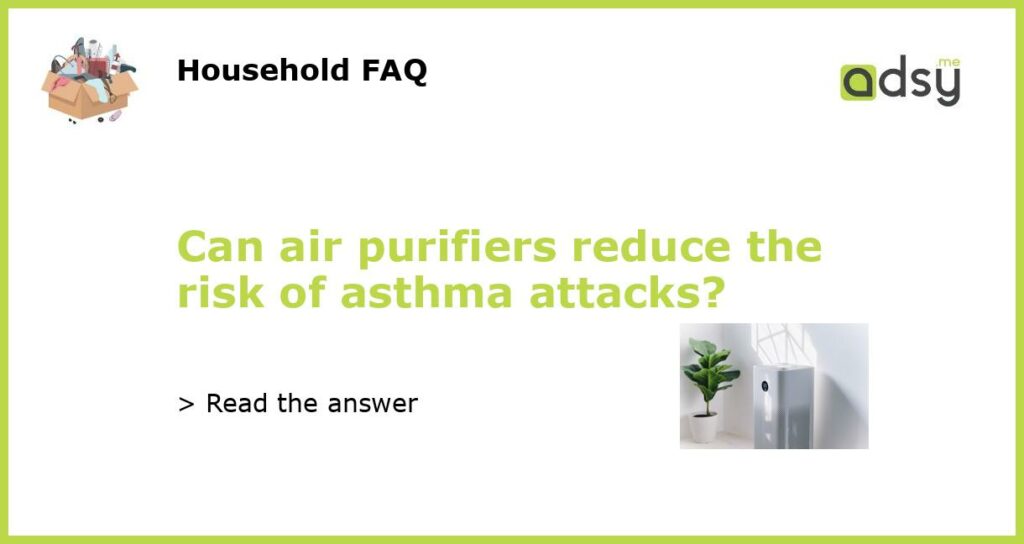How asthma attacks are triggered
Asthma attacks occur when the airways in the lungs narrow, become inflamed and produce excess mucus. This makes it hard to breathe and can result in coughing, wheezing and shortness of breath. Triggers for asthma attacks can vary between individuals but common culprits include pollen, dust mites, mold, pet dander, and air pollution.
What are air purifiers?
Air purifiers are devices that clean the air by filtering out pollutants. Most air purifiers use a system of filters to remove particles from the air including dust, allergens, smoke, and odors. Some air purifiers also use additional technologies such as ultraviolet light or electrolysis to destroy bacteria and viruses.
Do air purifiers help to prevent asthma attacks?
While air purifiers can help to remove common triggers for asthma attacks such as dust and pet dander, they cannot eliminate all triggers. Additionally, not all air purifiers are effective at removing specific pollutants. For example, an air purifier designed to tackle smoke may not be as effective at removing mold. It is important to choose an air purifier that is suitable for your specific needs and to use it in conjunction with other measures to control asthma, such as avoiding triggers and taking medications as prescribed by a doctor.
Types of air purifiers that can help reduce asthma attacks
High-efficiency particulate air (HEPA) filters are considered the gold standard in air purification and are recommended by the American Lung Association for those with asthma. HEPA filters can remove particles as small as 0.3 microns in size, including allergens, dust, and pet dander. Activated carbon filters are also effective at removing odors and smoke from the air. For those with allergies, there are air purifiers that can help with pollen and mold spores, such as those with UV-C purification or plasma ionization technologies.
Air purifiers can help reduce asthma triggers
While air purifiers should not be relied upon solely to prevent asthma attacks, they can play a role in reducing triggers and improving indoor air quality. It is important to choose an air purifier that matches your specific needs and to use it in combination with other methods of asthma control such as medication and avoiding triggers. Always consult with a doctor or respiratory specialist when choosing an air purifier for asthma to ensure it is effective for your individual needs.






